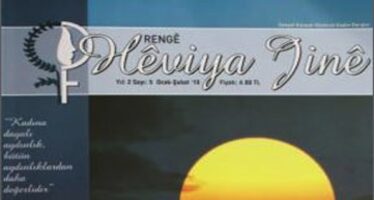Sakineh Mohammadi Ashtiani denies torture claims on Iranian TV
![]()
Sakineh Mohammadi Ashtiani denies torture claims on Iranian TV
Iranian woman facing death by stoning gives new interview amid claims previous confession was forced
Saeed Kamali Dehghan
The Iranian woman facing death by stoning after being convicted for adultery appeared on the Islamic republic’s state TV channel last night to say she has not been whipped or tortured.
Sakineh Mohammadi Ashtiani, whose stoning sentence was suspended in July, was allegedly given 99 lashes on 2 September after the Times ran a picture of an unveiled woman mistakenly identified as her, her lawyer said at the time.
“I have not been tortured, at all. All these words are my own words. Nobody has forced me to appear before camera and whatever I say is my own words,” said a blurry image of a woman identified as Ashtiani in brief video footage.
Speaking in her native Azeri language she said reports that she had been lashed for the photograph were “false and rumours.” Her words were subtitled in Farsi.
After appearing on TV last month where she “confessed” to involvement in the murder of her husband, Mohammadi Ashtiani’s government-appointed lawyer Houtan Kian told the Guardian that she had been tortured for two days before accepting to give the interview.
She has been denied visits by her family and her lawyer since then and has not been given permission to call anyone.
In her second interview, Mohammadi Ashtiani also denied that she had been lashed 99 times.
Earlier this month, Sakineh’s son and her lawyer claimed that she had been lashed over a photograph, published by the Times newspaper on 28 August, which was not actually of Sakineh but of another woman, for which the paper has apologised. She said: “No. I do not confirm it. It is all a lie and rumour.”
Last night’s TV interview with Mohammadi Ashtiani also prompted immediate reactions from her son, Sajad and her lawyer, Houtan Kian.
Both told the Guardian that they strongly condemned what they believe is a “forced” interview, aimed at “preparing the public opinion inside Iran for her execution.”
“Actually it has been a huge relief for me to see my mother on TV again after a month of complete cut off, because at least I found that she is still alive,” Sajad said.
“For a month, I have not been given permission to meet her while the government claimed that she has not been denied visits, how can I believe such a government which says lies as easily as this?” he added.
Sakineh’s lawyer, Houtan Kian, whose house in Tabriz has been ransacked and had documents confiscated after he spoke out in her defence, told the Guardian: “To me, this interview has been given forcibly again. She has been denied her very principle right of visiting her lawyer for more than a month and I, as her lawyer, have been harassed and threatened.”
Mohammadi Ashtiani again repeated her previous “confessions” that she was accomplice to the murder of her husband. Her lawyer also said that Iran has “intentionally” lost the judicial files of her husband’s murder in which it was clear that she had been acquitted of the charge.
Facing international anger over Mohammadi Ashtiani’s stoning case, Iran has repeatedly said that it is still undecided and that her case is being reviewed.
Human Rights Watch says Mohammadi Ashtiani, 43 and mother of two, was first convicted in May 2006 of having an “illicit relationship” with two men following the death of her husband and was sentenced by a court to 99 lashes.
Drewery Dyke of Amnesty International told the Guardian: “According to international standards, it is unacceptable for Iran to allow an interview with an accused like Sakineh Mohammadi Ashtiani to take place while she has been denied her right to meet her lawyer and the very fact that her case is still being reviewed.”
Related Articles
French protests jeopardise airport fuel supplies
![]()
As strikes over pension plans hit infrastructure, ministers warn of fuel shortage at Roissy-Charles de Gaulle airport French protesters take
CURSE. In A Time of Endless War
![]()
Curse? / A child’s tears before the blows fall / In Mariupol or Khan Younis. / These laughing soldiers with their /
teeth reeking of human flesh
Editor of Kurdish women magazine remains in jail
![]()
Bianet website today reported on the story of Gurbet Çakar, editorial manager of the Kurdish-Turkish women magazine Rengê Hevîya Jinê.




